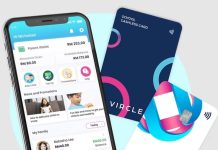
A higher minimum wage may hurt the small and medium-sized enterprises (SMEs) as they are still struggling from the effects of the Covid-19 pandemic.
According to Senior Minister and International Trade and Industry Minister Datuk Seri Mohamed Azmin Ali, the government needs to consider the SMEs and informal sector before making a decision to increase the country’s minimum wage.
“Every two years, the government needs to review the minimum wage, but we also have to take into consideration the current situation whereby many of the SMEs and informal sectors are just about to recover from the pandemic,” he told reporters after announcing Malaysia’s investment performance in the manufacturing, services and primary sectors in 2021 yesterday.
The country’s minimum wage is currently at RM1,200 per month.
Human Resources Minister Datuk Seri M. Saravanan had previously said that a minimum wage of around RM1,500 was expected to be implemented before the end of the year.
Meanwhile, Prime Minister Datuk Seri Ismail Sabri Yaakob said the government is holding engagement sessions with employers on the RM1,500 minimum wage to enable it to be implemented holistically.
He said for this purpose, the Human Resources Ministry is holding discussions with unions.
Azmin said a decision on the minimum wage would be made by the Cabinet next week.
Small and Medium Enterprises Association Malaysia (SAMENTA), on 10 February, had urged the government to focus on labour law reform and productivity instead of minimum wage.
“While we do not oppose any reasonable increment in the minimum wage, we urge the government to align any such increment to the growth in GDP and labour productivity. Malaysia’s labour productivity declined by 5.6 percent in the third quarter of 2021,” according to SAMENTA chairman Datuk William Ng.
The way forward for Malaysia and its workforce is to link income to productivity. The Productivity-Linked Wage System or PLWS, which counts the Ministry of Human Resources as among its champions, is seeing a lot of interests among businesses, including SMEs.
In more developed countries, such as Australia, it is common for employees to be paid based on output. Housekeepers in hotels, for example, are paid for rooms cleaned rather than hours worked. When occupancy is high, the employees make substantially more and hence gaining a larger share in the business prosperity.
This model has worked quite successfully in the ride hailing industry locally, with riders being paid primarily by jobs completed rather than by hours worked.














